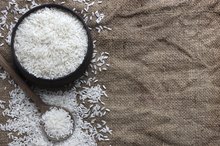Which Foods Are Good to Eat After Gallbladder Surgery?
The gallbladder is a non-vital organ, approximately 10 cm by 4 cm, located by the liver 2. The gallbladder contains bile, which it releases during digestion of fatty food, assisting the digestive system in processing such food 2. Occasionally, due to a significant amount of fat or a lack of fat in the diet, the gallbladder develops gallstones, which are quite painful 12. If the gallstones cannot be dissolved through ultrasonic waves, the gallbladder will be surgically removed 12.
Eating Habits
After undergoing surgery to remove the gallbladder, it's important not to stress the digestive system 2. Post-surgery, people can experience diarrhea and other digestive issues; maintaining healthy eating practices and avoiding certain foods can assist in reducing uncomfortable side effects. When eating, it's important to take small bites, chew food thoroughly, only eat when hungry and eat until satisfied. Overeating or eating because of stress can exacerbate the problem.
- After undergoing surgery to remove the gallbladder, it's important not to stress the digestive system 2.
- Post-surgery, people can experience diarrhea and other digestive issues; maintaining healthy eating practices and avoiding certain foods can assist in reducing uncomfortable side effects.
Foods to Include
Diet Following a Sigmoid Colectomy
Learn More
Focusing of fresh foods will not only allow the body to heal, but will improve overall health. Sweet potatoes, beets, cucumbers, green beans, avocados in moderation, fresh garlic and onions, tomatoes, grapes, grape juice, apples, apple juice, berries, vegetable juice, papaya, pears, lemons, cold water fish, flax meal and healthy oils such as:
- olive
- flax oil are all good food choices
Foods to Avoid
Foods that are not easily digestible, contain alcohol or caffeine, are high in fats--particularly saturated and trans fats or have possible uncomfortable side effects (such as causing gas) should be eliminated from the diet. Foods that are high in fats and are difficult to process post-surgery include:
- fried foods
- red meat
- pork
- eggs
- margarine
- ice cream
- chocolate
Oranges, grapefruit and corn can also be difficult to digest; wheat and barley can irritate the digestive system. Vegetables such as radishes, turnips, cauliflower and cabbages have a tendency to cause gas should also be avoided during this time.
Related Articles
References
- Gallstones and Gallbladder Disease
- Gallbladder Surgery Diet
- Cleveland Clinic. Gallbladder and biliary disease. Updated August 2010.
- American College of Surgeons. Cholecystectomy. Updated 2015.
- Cleveland Clinic. Bile duct exploration. Updated August 9, 2019.
- MyHealth.Alberta.ca. Gallstones: Should I have gallbladder surgery? Updated November 7, 2018
- Victoria State Government. Better Health Channel. Gallbladder-gallstones and surgery. Updated August, 2014.
- University of California San Francisco (UCSF). Choledochal cysts. Updated 2020.
- American Cancer Society. Surgery for gallbladder cancer. Updated July 12, 2019.
Writer Bio
Marguerite Lance has been a professional writer for seven years and has written for museums, hospitals, non-profit agencies, governmental agencies and telecommunication companies. Her specialties include nutrition, dietetics and women's and children's health issues. Lance received a Bachelor of Arts in biological anthropology from Idaho State University.









